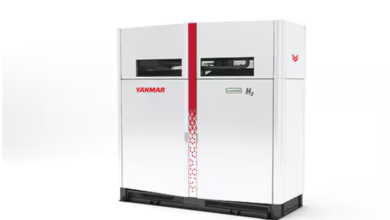Ionomr Innovations PEM and polymer exceed industry durability targets

Ionomr Innovations Inc.’s Pemion® has achieved performance and durability testing results that surpass internationally recognized standards from the US Department of Energy (US DOE) and Hydrogen Europe, confirming the company’s proprietary hydrocarbon-based proton exchange membrane and polymer is ready for widespread heavy-duty fuel cell applications.
The Pemion® membrane was tested for and met established accelerated durability benchmarks for combined chemical and mechanical stress testing. Throughout 1,000 hours of cyclical testing that exposed the membrane to intermittent dry and wet conditions under high-voltage chemical stress, Pemion® exceeded the internationally recognized 20,000 cycle durability targets set by the US DOE for polymer electrolyte membranes by more than two-fold.
As far as the company is aware, Pemion® is the first hydrocarbon-based membrane to ever pass these tests.
Pemion® is used in fuel cell applications including heavy-duty transport, automotive, and stationary power.
The materials have been designed to provide superior chemical, thermal, and mechanical stability, high conductivity, operational durability, and efficiency, all of which dramatically reduce the unit cost of the fuel cell.
- Pemion® materials’ gains in performance and reductions in gas crossover result in a significant reduction in lifetime hydrogen fuel cell cost.
- Alongside improved fuel efficiency, the lifetime of the fuel cell is enhanced due to reduced degradation.
- Higher operating temperatures are possible for higher power stacks with improved cooling and heat rejection.
- Pemion® boasts one of the highest room temperature proton conductivities available under a variety of conditions, while maintaining its mechanical stability, allowing implementation in diverse systems from light to heavy-duty, and beyond.
“This testing confirms Pemion® as a differentiator for fuel cell manufacturers looking to overcome the challenges of a tight supply market for conventional polymer and membrane materials, without any trade-offs to lifetime or performance,” said Ionomr CEO, Bill Haberlin. “Fluorinated materials such as those currently used in fuel cells are good at what they do, but they require toxic and highly regulated chemicals to be produced. As regulations continue to tighten, fuel cell and stack manufacturers will need to find practical material replacements. Pemion®’s performance and durability record and environmentally benign hydrocarbon-base create a step-change alternative.”
